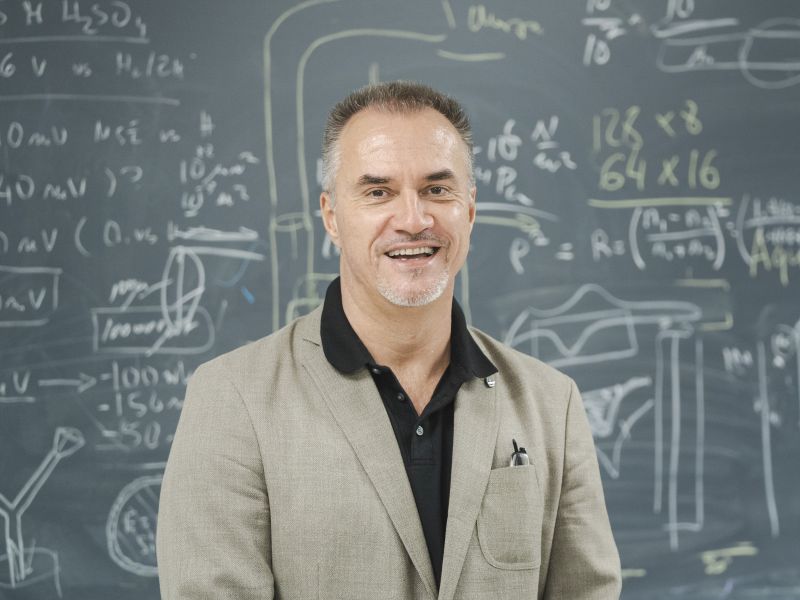Stanko R. Brankovic, Ph.D., a professor in the Electrical and Computer Engineering, and Chemical and Biomolecular Engineering departments of the University of Houston's Cullen College of Engineering, has been selected as a Fellow of the Class of 2021 for the Electrochemical Society (ECS).
The Fellow level of membership for the ECS was established in 1989, for advanced individual technological contributions in the field of electrochemical and solid state science and technology; and active membership and involvement in the affairs of the society. Those selected must receive at least three nominations from members of the ECS.
“It would be an understatement to say that I felt happy,” Brankovic said of learning about the honor. “I was very happy, and then overwhelmed with joy and satisfaction. It feels good when your contributions to the field of electrochemical material science and to the ECS have been recognized by your peers.”
In particular, Brankovic said he received support from a half-dozen peers for his nomination to Fellow status.
“The nomination process does not limit the number of supporters, and in my case, I had six to seven, all ECS fellows and well established researchers at the tier one schools and national laboratories across the world,” he said. “These are people who are familiar with my work, and also familiar with my contributions to the society. I have been actively engaged in the ECS for last 20 years, organizing more than 20 conferences and symposiums, giving invited lectures, teaching specialty courses, and also presiding over the Electrodeposition (ELDP) Division for two years. The ELDP Division is one of the largest in the ECS among the other seven.”
Brankovic earned his Bachelor of Science in Engineering from the University of Belgrade in Serbia, and his doctorate in Science and Engineering of Materials from Arizona State. This was when he was first using the ECS as a resource, though.
“The ECS has been pivotal in my career development since I was graduate student,” he said. “My first paper was published in Journal of The Electrochemical Society, and ECS conferences were the first I presented my work, met my peers, and talked with established researchers. The ECS meetings and publications were the guiding examples in my development and in establishing criteria for high quality research.”
In 2017, Brankovic was the winner of the Electrodeposition Division Research Award from the ECS, one of the highest honors in the field. His research interests include electrocatalysis, sensors, corrosion, and electrochemical material science and nanofabrication. However, he noted that he didn't want to limit his research interest in any ways.
“In general, I am still driven by scientific curiosity,” he said. “I am not necessarily following politically correct trends because I do not believe that good science needs a manger or direction. In the near future, I would like to expand my research in the area of nuclear engineering and isotope separation, some other special topics in catalysis, and in chemical detection, sensing, as well as development of alternative processes for fabrication of nanoscale devices.”
